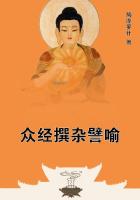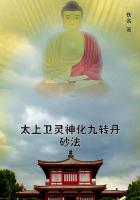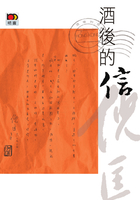On occasions which required set speeches Pym generally took the lead. Hampden very seldom rose till late in a debate. His speaking was of that kind which has, in every age, been held in the highest estimation by English Parliaments, ready, weighty, perspicuous, condensed. His perception of the feelings of the House was exquisite, his temper unalterably placid, his manner eminently courteous and gentlemanlike. "Even with those," says Clarendon, "who were able to preserve themselves from his infusions, and who discerned those opinions to be fixed in him with which they could not comply, he always left the character of an ingenious and conscientious person." His talents for business were as remarkable as his talents for debate. "He was," says Clarendon, "of an industry and vigilance not to be tired out or wearied by the most laborious, and of parts not to be imposed upon by the most subtle and sharp." Yet it was rather to his moral than to his intellectual qualities that he was indebted for the vast influence which he possessed. "When this parliament began"--we again quote Clarendon--"the eyes of all men were fixed upon him, as their patriae pater, and the pilot that must steer the vessel through the tempests and rocks which threatened it.
And I am persuaded his power and interest at that time were greater to do good or hurt than any man's in the kingdom, or than any man of his rank hath had in any time; for his reputation of honesty was universal, and his affections seemed so publicly guided, that no corrupt or private ends could bias them. . . . He was indeed a very wise man, and of great parts, and possessed with the most absolute spirit of popularity, and the most absolute faculties to govern the people, of any man I ever knew."
It is sufficient to recapitulate shortly the acts of the Long Parliament during its first session. Strafford and Laud were impeached and imprisoned. Strafford was afterwards attainted by Bill, and executed. Lord Keeper Finch fled to Holland, Secretary Windebank to France. All those whom the King had, during the last twelve years, employed for the oppression of his people, from the servile judges who had pronounced in favour of the crown against Hampden, down to the sheriffs who had distrained for ship-money, and the custom-house officers who had levied tonnage and poundage, were summoned to answer for their conduct. The Star-Chamber, the High Commission Court, the Council of York, were abolished. Those unfortunate victims of Laud who, after undergoing ignominious exposure and cruel manglings, had been sent to languish in distant prisons, were set at liberty, and conducted through London in triumphant procession. The King was compelled to give the judges patents for life or during good behaviour. He was deprived of those oppressive powers which were the last relics of the old feudal tenures. The Forest Courts and the Stannary Courts were reformed. It was provided that the Parliament then sitting should not be prorogued or dissolved without its own consent, and that a Parliament should be held at least once every three years.
Many of these measures Lord Clarendon allows to have been most salutary; and few persons will, in our times, deny that, in the laws passed during this session, the good greatly preponderated over the evil. The abolition of those three hateful courts, the Northern Council, the Star-Chamber, and the High Commission, would alone entitle the Long Parliament to the lasting gratitude of Englishmen.
The proceeding against Strafford undoubtedly seems hard to people living in our days. It would probably have seemed merciful and moderate to people living in the sixteenth century. It is curious to compare the trial of Charles's minister with the trial, if it can be so called, of Lord Seymour of Sudeley, in the blessed reign of Edward the Sixth. None of the great reformers of our Church doubted the propriety of passing an act of Parliament for cutting off Lord Seymour's head without a legal conviction. The pious Cranmer voted for that act; the pious Latimer preached for it; the pious Edward returned thanks for it; and all the pious Lords of the council together exhorted their victim to what they were pleased facetiously to call "the quiet and patient suffering of justice."
But it is not necessary to defend the proceedings against Strafford by any such comparison. They are justified, in our opinion, by that which alone justifies capital punishment or any punishment, by that which alone justifies war, by the public danger. That there is a certain amount of public danger which will justify a legislature in sentencing a man to death by retrospective law, few people, we suppose, will deny. Few people, for example, will deny that the French Convention was perfectly justified in placing Robespierre, St. Just, and Couthon under the ban of the law, without a trial. This proceeding differed from the proceeding against Strafford only in being much more rapid and violent. Strafford was fully heard. Robespierre was not suffered to defend himself. Was there, then, in the case of Strafford, a danger sufficient to justify an act of attainder? We believe that there was. We believe that the contest in which the Parliament was engaged against the King was a contest for the security of our property, for the liberty of our persons, for everything which makes us to differ from the subjects of Don Miguel. We believe that the cause of the Commons was such as justified them in resisting the King, in raising an army, in sending thousands of brave men to kill and to be killed. An act of attainder is surely not more a departure from the ordinary course of law than a civil war. An act of attainder produces much less suffering than a civil war. We are, therefore, unable to discover on what principle it can be maintained that a cause which justifies a civil war will not justify an act of attainder.















